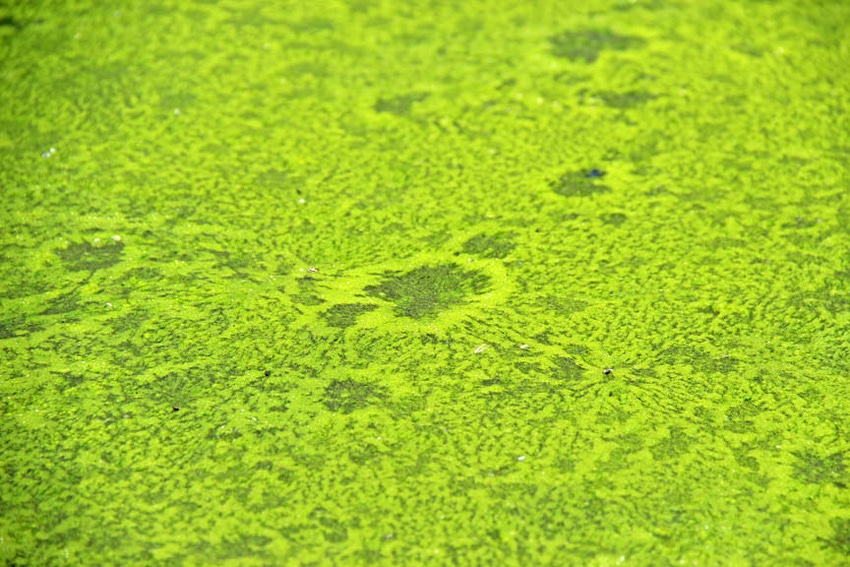May 22, 2013

The study of algal biofuel is a young industry that is making strides in finding a purpose as renewable fuel. But, can it also fuel livestock? That is exactly what an associate professor at New Mexico State University is hoping to discover through her research combining algal co-product with livestock feed.
Shanna Ivey, with the Department of Animal and Range Sciences, is working with an alliance - which involves several departments at NMSU - that is studying algal biofuel and bio products.
Ivey said her role in the project is to research the benefits of the co-product left over after oil is extracted from algae.
"The biggest challenge we face now is that algae is a wonderful idea, but it is challenging to grow enough biomass to do a full animal experiment, because it takes quite a bit of algae especially for cattle," she said.
Texas A&M University, a partner in the alliance, is using one strain of algal co-product on livestock. For her part in the research, Ivey is taking a more scientific approach that allows her to work with six strains of algae while using no animals.
"We have continuous flow fermenters that are basically an artificial rumen," she said. "For our study, we require only two kilograms of material whereas, to do an animal study would take a ton of material."
Ivey and her team take ruminal fluid from cows and conduct fermentation in the lab that simulates as if they were to feed a cow. She is using algae from the Fabian Garcia Science Center and an algae farm in Pecos, Texas.
As part of the $50 million Department of Energy grant, various members of the consortium grow algae. The algae is then sent to Valicor in Michigan where the oil is extracted and the co-product is distributed to the various partners.
"This co-product is high in protein," Ivey said. "It's about 25 to 30 percent crude protein which is good for livestock. It seems to also have some carbohydrates as well, and some residual oil that can be used as energy."
Due to crude protein requirements for livestock feed, researchers are looking to mix as high as 15 percent of the co-product into the total diet.
Harvest dependent
"So far, we have learned that the algal byproduct is very strain dependent," Ivey said. "Depending on what kind of algal strain is being grown affects the quality of the co-product. The quality is also affected by the method of harvesting, and also how the oil is extracted. Right now, this is a young industry so there are a lot of different things we are looking at as far as methods of growing, harvesting and extracting."
She said NMSU's goal is to take multiple strains from multiple harvest techniques and from multiple extraction techniques and build a database that can then be used to compare all the different strains with all the different harvest and extraction techniques, and how it all affects the co-product.
The long-term goal of the project is to add more value to the co-product. Ivey said one difficulty they are facing now is that they cannot get to a consistent product and that in order to create a product that people can depend on, they need to find a way to make the algal co-product consistent in value and nutrients. Researchers within the consortium are using soybean meal as the gold standard as they try to find consistency as soybean meal mean is always very close to 40 percent crude protein, no matter where or when it is bought.
At this point, Ivey has finished the fermentation studies and is starting to analyze the samples.
"I've learned a lot through this research," Ivey said. "It's been really interesting. We've made some really good contacts and met some neat people - people who are very passionate about algal biofuels."
More from Western Farm Press
Supreme Court stuffs seed patents back in Pandora’s box
Photos: Ageless veterans soar once again
Agricultural pioneers battling water scarcity
Wine skeptic takes on climate change report
Honey bee decline all about colony stress
7 big questions for the farm bill debate
You May Also Like




